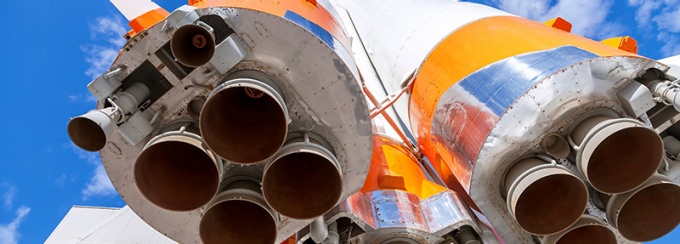Here is how we are advancing space exploration

Paul DesJardin is leading a team of researchers to simulate and design safe, low-cost motors that could propel nanosatellites, other vehicles into space.
UB awarded $8.5 million to improve hybrid space rockets
The award provides the University at Buffalo with the resources to explore how hybrid rockets — a nearly 100-year-old concept that’s getting a fresh look thanks to advancements in computing power and artificial intelligence — can be used to launch satellites into space using common fuels like candle wax and kerosene.
The $8.5 million U.S. Department of Energy also enabled UB to establish the Center for Hybrid Rocket Exascale Simulation Technology (CHREST).
Multidisciplinary research team
In addition to DesJardin, UB investigators for CHREST include Varun Chandola and Matthew Knepley, both associate professors in the Department of Computer Science and Engineering; James Chen, associate professor in the Department of Mechanical and Aerospace Engineering; Mark Swihart, UB Distinguished Professor and chair of the Department of Chemical and Biological Engineering; Matthew Jones, interim director and lead computational scientist at the UB Center for Computational Research; and Letitia Thomas, assistant dean for diversity in the School of Engineering and Applied Sciences. Abani Patra, Stern Family Professor of Computer Science at Tufts University, is also an investigator.
The team will work with an advisory board of scientists from Lawrence Livermore National Laboratory, Sandia National Laboratories and the Los Alamos National Laboratory.
Advancing Exascale Computing Technologies
CHREST is one of nine new Predictive Science Academic Alliance Program III Centers selected by the energy department’s National Nuclear Security Administration (NNSA). The awards support science-based modeling and simulation and exascale computing technologies. The nine centers are funded by NNSA’s Advanced Simulation and Computing program, which engages the U.S. academic community in advancing science-based modeling and simulation technologies.
